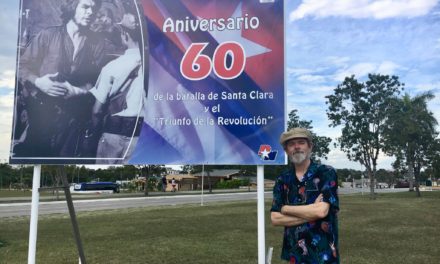Notes From The City 3/7/94 The Gardener’s Situation
Susan is employed by the city as a gardener. She is 48 –a single mother with one son starting college and one finishing elementary school.
AVA: Is “gardener” your formal job title?
SE: I’m a gardener, that’s what all of us are. There’s only one classification now. They used to have an entry level called “assistant gardener,” but there was a lawsuit about them doing the same kind of work and not getting paid as much.
AVA: When was that?
SE: That was before I came, and I’ve been there almost 10 years –10 years this spring.
AVA: Have you been in Golden Gate Park the whole time?
SE: Almost. I was at a golf course first and they transfered me. In fact, I’ve been on the same beat for almost 10 years.
AVA: What is your beat?
SE: I’m between the conservatory and McLaren Lodge. From Kennedy Drive back, in one part, to North Ridge Road (the semicircular road leading out to Arguello at Fulton).
AVA: Including the rhododendrons?
SE: I have the camellia gardens and one rhododendron bed. And I have a meadow called “Peacock Meadow.” There used to be peacocks there.
AVA: Are you solely responsible for that whole area? Do you have a partner?
SE: I’m part of a crew of seven people. We each have our own area of responsibility. And then together we do the flowerbeds in front of the conservatory. Those are our responsibility as a crew. And the carpetbedding plaques made out of flowers –we do those, too. It’s quite a lot of work. Our crew has lost two positions permanently. The park used to have 125 gardeners and now it has about 75.
AVA: When was the work force at its peak? SE: Probably in the ’50s and ’60s. There’s been a hiring freeze for about five years, which people must not realize when they read stories in the paper about “fat city employees.” I don’t make that much money.
AVA: What do you make?
SE: Gardeners make anywhere from $35 to $39,000 –that’s the ceiling. We haven’t had a raise in three years.
AVA: How have they cut the work-force? By lay-offs?
SE: By attrition. We were looking at lay-offs for a while but there have not been too many so far. We feel lucky.
AVA: They make us all feel lucky. Even as we have to do the work of more people, we feel lucky to have a job
SE: And there’s more work because we have a lot of homeless people we have to deal with. And each crew now has a strip of Park Presidio that’s our responsibility because there are no gardeners there anymore.
AVA: Describe your work week. Is there a typical day?
SE: I report in to my boss at 7 a.m. His title is Park Section Supervisor but we call him “the foreman.” There are now six foremen supervising the 75 gardeners. There used to be 11 sections with one foreman per section. But after they had the big retirement a few years ago, a lot of people left and they consolidated sections. My boss is responsible for three sections (maintained by three separate crews). He’s very hardworking, a very good man. I report in to him at 7, to a little compound to the east of the conservatory –our little shack.
I have my own set of tools in a toolbox on my beat. Loppers, hand-hoes, things like that. Some things we share –like an edger and a blower. Most days, unless I’m working with my crew on the flowerbeds or on some special project like heavy pruning, I’m working by myself on my beat and I make my own decisions about what to do. I do some spraying when I have to.
The only thing that I’ll agree to spray, when I absolutely have to, is Round-Up. I’ve done so much handwork on my beat that the only places I have to spray are a set of cobblestones in which I can’t dig out the weeds, and maybe a few cracks in the sidewalk. They’d actually be very mad to know how much I still hand cultivate my beat. I don’t like using pesticides. Most people don’t. When you have a place for a whileyou can control it, it’s just a matter of work. Just like in your own yard. You don’t have to let things get so bad. And I must say, I work real hard, my area looks real nice, I like my job. Or I used to. I used to like my job. I have about twice the amount of territory I had when I first started, because we’ve lost people. Part of my beat is what we consider “woods” –it doesn’t get watered, it’s oak forest and things like that. I check that for garbage and keep tabs on the homeless and clean up after them. For the last five years I’ve taken my dog with me, which was always allowed before. This is what pushed me over the edge.
[A light tan dog, part Samoyed, part lab, lay asleep at her feet as Susan described her situation.] I get regulars –people that come every day– who like the fact that I have a dog. She’s friendly but she’s protective. She watches my back for me.
AVA: How do they make sure that everybody’s doing their job?
SE: The thing about a job like this is, it’s out there for everyone to see. My foreman is responsible if I’m not doing my job. And the person that he’s responsible to is the area supervisor for Golden Gate Park. This is a new position they created when they cut back on the foremen. And this is the man we’ve been having so much trouble with. He is one of those very linear people who expects things to look perfect. Last May, right before we planted our spring crop in Conservatory Valley, he decided to apply a soil sterilant called Basamid. It’s very similar to what was dumped in the Sacramento River when they had that Southern Pacific derailment up in Dunsmuir.
AVA: Did you have to apply it?
SE: We had a spray operator for Golden Gate Park. His job was deleted after this incident. I think he probably did other parks and squares as well. He applied this pesticide under the supervisor’s orders, and apparently he applied it at the very high end of the allowable level. Anyway, there was an amount of time before we were allowed to go back in the area. But all the time we were not allowed to go back in, gas was seeping out and hundreds of people were walking around that valley every day. There were no signs or barriers of any kind. The supervisor sent us back in to plant our plants at the very low end of the allowable period. As far as he was concerned, “the plants were ready.” Basamid is put down in granular form and then you water it in and it creates a barrier that sits in there for two or three weeks and kills everything –microbes, seedlings, worms, whatever. Then you’re supposed to mechanically vent the beds, to open them up so the gases can escape.
AVA: By hoeing? Tilling?
SE: By tilling. This is an agricultural product more than a horticultural product. But he decided not to vent the beds, so he would get the best kill possible. Finally we were sent in there one day with our little grading rakes, and we start opening up these beds and (groans).
AVA: You could smell the noxious fumes?
SE: Everybody could smell it. The fellow whose beat is Conservatory Valley, who was walking around those beds after the pesticide was applied, got the most exposure. They’re now transfering him out. We just had a toxicologist come from General Hospital Poison Control Center to give us an update on longterm effects of Basamid exposure– and he told us that it’s a skin irritant and that’s the only symptom. Well, we were dizzy, we were confused and disoriented. We had burning eyes and coughs and scratchy throats.
I didn’t remember driving home that first night. I couldn’t finish my sentences when I was talking to my children. I told my older son, “If I pass out and go into convulsions, drive me to the hospital.” Like fools, we planted in there for three days. We were so afraid of this man, our area supervisor. You don’t just tell this man, “No, we’re not going to do something.” After the third day, halfway through the day, we were so sick that we quit and went down to the city clinic [The Franciscan Room at St. Francis Hospital where all city employees report when they’re injured on the job] and had them document our symptoms. They immediately told us, “You’re not going back in there, you’ve been overexposed.”
So we went back to work and he came in and we told him that something was wrong and we were not going to finish the planting. He tried to get us to go back the next day for two or three hours. You’d think the guy would figure it out.
AVA: All the members of your crew had these symptoms?
SE: Yes. And when we wouldn’t go back in and finish, the supervisor brought people over from another crew, even though we were all sick. And then they all got sick and went down to the city clinic and were no longer able to work in the beds. The planting was finally finished by gardeners from other sections who were not told of our exposure. The gardeners were not the only ones who were affected by the Basamid fumes. Several people and their dogs were also affected.
Now even though I’m a city employee, my loyalty is really to the public –to the taxpayers who pay my salary and the people who use the park. Whether they are tourists visiting for the first time or residents who come every day, their safety is very important to me. What good are my efforts to keep my part of the park beautiful if people are afraid to come there? Unfortunately, though, this attitude has created many difficulties for me.
Shortly after the Basamid exposure, the area supervisor falesely accused my dog of attacking someone, and he issued an edict that gardeners could not bring their dogs to work with them anymore. My dog’s presence has deterred countless muggings and rapes on my beat, even though the department considers her a liability. It is simply revenge for my efforts to protect my own well-being. I’m a good worker, but I feel like I’m being pushed out of my job. My crew and I are subjected to harassment on a daily basis by a man who claims that none of us work to his “high” standards. He would like to get rid of all of us so that he can forget this incident ever happened. And we can ony wait to see what longterm effects this poisoning will have on us.
Paper For Sale?
Last summer the prevailing faction of the Theiriot family hired a corporate efficiency expert named John Sias to replace their cousin Richie at the helm of the Chronicle. Sias’s mandate was to reduce costs –especially payroll– and improve the Chronicle’s profit picture so that the company would look good to prospective buyers. Longtime employees were offered incentives to retire, typically a full year’s pay added to their retirement fund. An editor who accepted the package told the AVA “The place has been unbelievably grim for the past half year. The attitude of management is, ‘We own this house and we have to get rid of these shitty tenants before we can sell it.'” The workers who produce the paper –reporters, drivers, printers, etc.– used to negotiate a coordinated contract. This year management insisted on negotiating separately with the various unions representing Chronicle employees. Reporters won’t get a raise, will give up two paid holidays, will agree to wait longer for their vacations, etc. etc. And will feel luckier than ever to have a prestigious, influential job in the well guarded fortress.
Who Killed Colosio?
The smart money in Tijuana says that the assassin of Luis Donaldo Colosio was hired by the Arellano family –billionaire drug traffickers who resent the zeal with which a government task force has been pursuing them. The Arellanos come from Sinaloa but have been chased to a hide-out somewhere in Baja California. It was the Arellanos, firing at a rival in a limo, who reportedly gunned down the archbishop in Guadalajara last year… And while we’re south of the border, did you know that all three of the candidates vying to succeed Colosio as the PRI presidential candidate have graduate degrees from presitigious U.S. universities?
Spielberg’s Dogs
Stephen Spielberg’s Oscar acceptance speech was even more vapid and self-pitying than reported here recently. Spielberg called on American educators to present the holocaust as “more than a footnote to history.” What kind of understanding about World War II does he think prevails? Isn’t the extermination of European Jewry generally conveyed as the central event (along with the sneak attack on Pearl Harbor)? Does Spielberg think American high school graduates can list the war’s basic causes?
A new biography of Steve Ross, who ran Time-Warner, describes how Ross made airplanes available so that Spielberg could fly his dogs cross-country. Ross also paid Spielberg $23 million for the rights to a video game based on E.T. … Spielberg –like many rich American Jews– seems to understand nothing about Nazism or its socioeconomic origins. Spielberg and his fellow culture barons promote a system –the rich/poor system– that has always produced economic crises during which the rage of the sinking lower middle class fuels a virulent nationalism. If Spielberg had any sechel he would have told the academy and the 1.1 billion viewers, “Want to make sure it never happens again? Let’s commit ourselves to the goal of equality, worldwide, ASAP.”
Z. Zhirinovsky, the leader who would restore the Russian empire all the way to Cazadero, changed his name from Edilshtein in 1964. Did you ever notice how many charismatic political/militarly leaders are actually auslanders (ethnically distinct from the people they’re leading)? For example, Napoleon was a Corsican, Garibaldi from Nice, Hitler from Austria, Stalin from Georgia, Che from Argentina, etc. etc. Some say Francisco Franco was Jewish, too.





